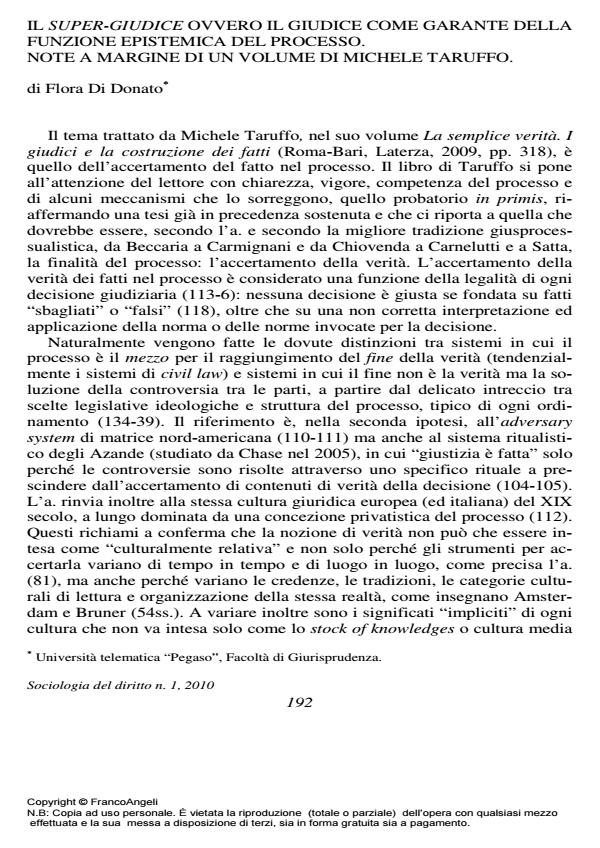The super-judge, or the judge as guarantor of the epistemic function of proceedings. Notes on the volume by Michele Taruffo
Journal title SOCIOLOGIA DEL DIRITTO
Author/s Flora Di Donato
Publishing Year 2010 Issue 2010/1
Language Italian Pages 9 P. 192-200 File size 286 KB
DOI 10.3280/SD2010-001009
DOI is like a bar code for intellectual property: to have more infomation
click here
Below, you can see the article first page
If you want to buy this article in PDF format, you can do it, following the instructions to buy download credits

FrancoAngeli is member of Publishers International Linking Association, Inc (PILA), a not-for-profit association which run the CrossRef service enabling links to and from online scholarly content.
Procedure - Facts -Narrations - Truth - Culture.] The truth, establishing the facts, proof/evidence and narrative are some of the key meanings around which Michele Taruffo has structured his volume La semplice verità. Complying with the finest traditions of studies of procedure, the author discusses whether it is possible to reach the truth as the ultimate goal in a system that enshrines guarantees like that of the "just proceedings", drawing a distinction between a "just" decision and "proven" truth. The logical model used by Taruffo to anchor the demonstration of the thesis that the truth is a "possible" outcome, at the end of a process of logical verification in which the judge plays the part of the guarantor, refers primarily to Susan Haack’s epistemology. Although he adopts a critical stance vis-à-vis relativistic orientations of a post-modern stamp, he does not neglect to consider significant input from culturally-oriented social constructs and to build it into his model, as it has exerted substantial influence in the panorama of contemporary studies of legal theory. This volume promises to be very useful, among other things because of the interesting profiles of comparison it offers between different legal system.
Flora Di Donato, Il super-giudice ovvero il giudice come garante della funzione epistemica del processo. Note a margine di un volume di Michele Taruffo in "SOCIOLOGIA DEL DIRITTO " 1/2010, pp 192-200, DOI: 10.3280/SD2010-001009